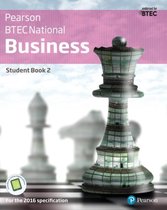A. P2: Explain how two contrasting businesses are influenced by stakeholders
A stakeholder is an individual, group or organisation that has interest in a business and
provide investments through monetary and mentorship means in exchange for a percentage of
the business. Stakeholders affect and are affected personally by how the business operates, as
well as its objectives, aims, policies and actions.
Stakeholders are internal and external both influence a business momentously. Internal
stakeholders are individuals or groups, who work within the business and have a say or have
an effect on the business’s operations and costs.
Internal stakeholders:
- Owners- Individuals or group who influences the business operations, aims, policies
and strategies are referred to as owners. Shareholders and stakeholders are different
because the latter has interest in the business but don’t own shares in the business
- Managers- Decisions makers and supervisors of employees in specific department or
area i.e. store manager in branch.
- Employees- Report to the managers, support customers etc., i.e. customer support, HR
etc.
Internal stakeholders influence a business prominently because the owners are crucial in the
decision making of business activity, which will enable the business to grow and maximise
profit. Furthermore, employees may have limited amount of influence but affect the business
directly because they are responsible for the production and selling of business
products/services. Managers influence the business by proving recommendations and
decisions to employees that will have positive impact.
External stakeholders:
External stakeholders are groups or individuals outside a business, i.e. community. Tesco has
external stakeholders in the form of customers and locals who purchase from the store, who
give feedback to improve experience. Below are examples of external stakeholders:
- Suppliers- produces and manufacturers of good and services for business, the
suppliers are all primary and secondary sector business.
- Local community- The community around the area may feel a major business opening
in their area is disruptive and negatively affects local business or if they feel
positively about it, it can boost sales and locals may become loyal to it.
- Customers- Customers purchase the products and services from a business, the
success of the business depends on the retention and increase of potential customers.
- Governments- GOV UK have the ability to pass laws, amend tax levels and trade
deals, which can affect a business supply chain.
- Pressure groups- Green peace and animal rights activists continuously harass the
business about their impact on the environment. In 2016 extinction rebellion broke
into a Tesco manufactures warehouse and damaged million pounds worth of goods to
prove a point.
, Stakeholders influence on Tesco: How stakeholders influence business activity and how are
they affected?
Owners and shareholders in PLC and LTD are the most influential stakeholders because their
final decision is final and that choice can make or break the business sales. In Tesco case, it is
PLC and shareholders are able to vote out chief executive officers through board member
votes.
Ken Murphy is the current chief executive officer (CEO) of Tesco’s and has been since 1st of
October 2020 succeeding Dave Lewis, who had was hired in 2014 and his savvy business
decision making saved the business from a debt and a decreasing market share. Ken Murphy
in 2020 designed a strategy to increase profits for Tesco, which has influenced the business
positively compared to other competitors. Tesco reached £53.4 billion in pandemic profits,
through increasing delivery capacity.
An increase in sales for the business results in a positive influence on the owners and
executives because the profit generated is then given as bonuses, the higher the profit and the
higher the dividend pay-out for the shareholders and owners.
Employees in Tesco are fundamental because customers purchase products due to the great
customer experience and store atmosphere, which is provided by excellent staff productivity.
Employees can individually increase sales through maintain positive customer relationship,
the customer will continuously shop at the store, leave good reviews and tell others to shop
there. Employees are stakeholders because they have interest so they can receive salaries and
bonuses annually for their work. Employees have a positive interest for the business because
if the business fails, they cannot earn a salary to maintain their living standard.
Managers are internal stakeholders due them working within and in the interest of the Tesco.
Manager like employees are paid annual salaries and bonus depending on the business
profits, if Tesco fails to generate profits they may be made redundant. Managers are crucial
for the business he/she are responsible for the operations of their store, managers make
recommendations and support employees in increasing customer satisfaction in their branch.
Managers are influenced by Tesco operation because they may want opportunities to progress
their career from branch manager to work at the head office but if opportunities aren’t
provided by Tesco it can lead to demotivation then the manager may quit the branch for a
competitor.
Governments are external stakeholders because they are responsible for setting regulations,
tax rates, inflation etc. Tesco has to pay corporate taxes and the sitting government
determines the rate, the current main corporate tax rate is 21%. Government are stakeholder
because it is directly affected by Tesco profits, governments require taxes to fund social
welfare programmes such as youth centres, education and health. In summary, the
government has positive interest in the business because the higher the profits for Tesco, the
more taxes the government will get for corporation taxes.
Suppliers have major influence because they can have significant impact on the quality
production of the goods and reliability of deliveries, Tesco relies on the delivery and quality
production of their goods from factories/suppliers all over the world, i.e. Tesco’s milk
suppliers are called ‘fair for farmers’, they produce and directly supply milk to Tesco stores
across the country. A mishap from fair for famers can result in Tesco losing major sales and






